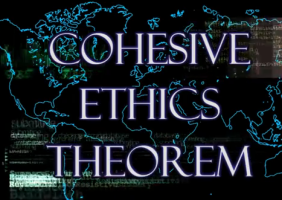A couple of years before SJ1, I was in the middle of a personal journey that was transforming my way of thinking. Details are not important, but the result of it was that I’d learned some incredible things about the untapped potential that is present within each and every one of us. And inevitably this found expression in the novel. To an extent I was using the novel as a space to record my developing ideas, albeit in embryonic form.
At this time I was thinking about the possibility of an ideal society, an environment that enables us all to unlock that potential. What’s really stopping us from creating a civilization that resembles something out of Star Trek or Iqbal’s fictional world ‘Marghdeen’ in Javid Nama?
Like many Pakistanis, I’d heard about those who genuinely believed that part of the idea behind Pakistan was to create a society that would aim for the highest of ideals. At this point I didn’t know enough about it to say I had any sort of opinion about this. But it was an intriguing concept. In Pakistan of course, it hasn’t been realised to date, even if it continues to capture the imagination of Pakistan’s youth.
THE SYSTEMS EXPERIMENT
 Meanwhile my novel was developing slowly. I had an idea for an experiment that would simulate history and test social systems, including an ‘ideal’ one. Computer simulations are commonly used for predicting weather patterns and observing changes in ecosystems. To my mind a social system simulation seemed perfectly feasible – more feasible, than say, trying to set up an experimental ideal society within an existing country where all sorts of practical obstacles would get in the way. A simulation would provide a controlled environment and in fact would be a more reliable test. In the novel, the Systems Experiment would prove that an ideal society was possible, and then the bad guys would go and ruin it all … as they always do. 🙂
Meanwhile my novel was developing slowly. I had an idea for an experiment that would simulate history and test social systems, including an ‘ideal’ one. Computer simulations are commonly used for predicting weather patterns and observing changes in ecosystems. To my mind a social system simulation seemed perfectly feasible – more feasible, than say, trying to set up an experimental ideal society within an existing country where all sorts of practical obstacles would get in the way. A simulation would provide a controlled environment and in fact would be a more reliable test. In the novel, the Systems Experiment would prove that an ideal society was possible, and then the bad guys would go and ruin it all … as they always do. 🙂
The only problem was I didn’t know how to test an ideal system when I couldn’t even describe it. ‘Never mind,’ I thought. ‘It’s fiction anyway.’ Still, I did come up with a name for it: Libredux. The word means ‘return to liberty and justice’, since lib means both ‘liberty’ and ‘justice’ (the latter by virtue of the Latin libra – literally, ‘balance’). That was as far as I got with the idea at this stage.
THREE MAGIC WORDS
Around this time I also happened to acquire a copy of Iqbal’s Reconstruction of Religious Thought in Islam. I was awed by this book, which was the first truly philosophical piece on Islam that I had ever seen. The passages that interested me most were those on the ‘unity of God’ – called Tauheed in the Quran. Tauheed is the philosophical basis of the so-called ‘Islamic worldview’ – which treats matter and spirit as one (and not two separate things as we do in the West). One of my favourite passages from the book was:

Dr. Iqbal. Courtesy allamaiqbal.com
The essence of ‘Tauhid’ as a working idea is equality, solidarity, and freedom. The State, from the Islamic viewpoint, is an endeavour to transform these ideal principles into space-time forces, an aspiration to realise them in a definite human organisation.
I quoted this and similar passages in SJ1 to try and explain the idealism that motivated many supporters (not all of them Muslim) of the Pakistan idea. But for a very long time, I didn’t see the connection between this passage and my word, libredux. Nor did anything click when I wrote that appendix and only listed freedom and justice as the simplest ideals. I didn’t even connect that appendix to the word libredux. (I’m a bit slow sometimes.) The obvious reason was that since I hadn’t come to the theorem yet – and since I also hadn’t realised the final value of ‘unity’ (solidarity) yet – I couldn’t see what was right in front of me.
Next: Pt 3: The missing principle … Pt 4 (final): Reversal
Earlier posts in this mini-series:
Introduction … Pt 1: The first book … Pt 2: Libredux …
(Some images in this post are copyrighted)





